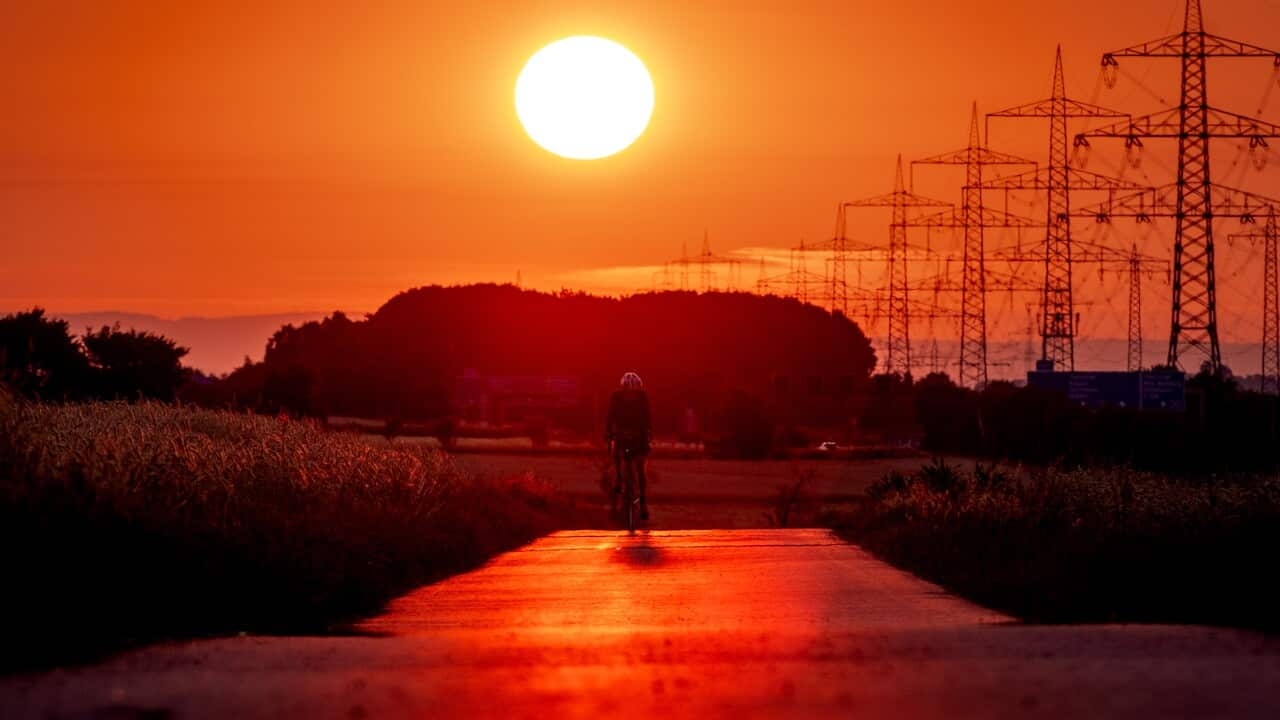Australians are already living with the consequences of climate change, and every fraction of a degree of global heating matters, according to a new report.
The report examined climate change globally, with a focus on Australia's 2035 climate targets, which are yet to be announced.
The Climate Council said climate pollution has led to average global temperatures increasing by 1.3C, driving more ferocious and frequent extreme weather.
In 2025, communities in parts of Australia have experienced cyclones, flooding, marine heatwaves, fires and droughts, with climate-fuelled disasters costing Australia more than a billion dollars this year.
The future scale and severity of these issues will depend on how quickly governments reduce global climate pollution, according to the Climate Council report.
"Every fraction of a degree of global heating matters: the difference between 1.5 degrees and 2 degrees is existential for vulnerable communities, coral reefs, agriculture, and ecosystems," the report said.
"While many countries are now taking measures to cut climate pollution, the combined effort is not yet at the speed or scale required to protect humanity from the worst impacts of climate change."
What could happen to Australia?
The report examined potential real-world impacts at different degrees of global warming, and found impacts "amplify rapidly" between 1.5 and 2C.
If global temperatures increase by 2C, extreme heat will become 2.6 times worse, the number of ice-free summers would become 10 times worse compared with 1.5C, the report said. It also found the number of invertebrates and plants lost would double, and the number of insect species lost would triple.
It also said the decline of coral reefs would increase by up to 29 per cent, and the decline in marine fisheries would double.
If temperatures increased by 3C, Australia would become "unrecognisable", the report said.
It said the impacts would extend from "very severe" to "catastrophic", with extreme heat, droughts, cyclones, storms and flooding set to become more intense and frequent.
Hotter temperatures would exacerbate long-term factors that could damage physical and mental health, put infrastructure and population in cities under strain, and render many properties and businesses unavailable.
If global warming increased by 3C, Australia's coral reefs would cease to exist, along with many fishery and tourism industries, and marine ecosystems globally. Many land ecosystems and primary industries would be destroyed or changed "beyond recognition", according to the Climate Council.
What are the recommendations?
The Climate Council said Australia's 2035 climate target must be "very strong", with analysis showing that net zero is the "only target available" with a strong chance of contributing to holding global warming below 2C.
Their analysis found Australia needs to reduce climate pollution by 75 per cent or more from 2005 levels by 2030, and reach net zero by 2035 to adequately contribute to global targets.
The Climate Council also recommended amending the Climate Change Act to legislate 2035 targets into law, which it says will provide an important signal, leverage and policy certainty for coordination across all levels of government and the broader community.
It also said Australia's climate targets should include a commitment to phase out fossil fuel use, production, exports and subsidies, including a clear plan with timelines.
The report said the targets must be based on "genuine and real reductions" to emissions, including minimising reliance on offsets.
What is the government doing on climate change?
The Albanese government has made a series of steps and commitments on climate change.
In its first term, the government approved enough renewable energy to power more than 10 million homes, invested $1.2 billion to save the Great Barrier Reef, and enshrined a target of net zero emissions by 2050 into law.
But it has also been criticised for its approval of coal mine extensions and oil and gas projects, which environmental groups say undermine credibility in tackling rising emissions.
The Greens have said they want to introduce a "climate trigger" bill to parliament.
The bill would require the government to consider climate impacts when considering whether to approve projects like coal mines.
"Our bill would force the climate impacts of projects to be considered by the minister, and it would also ensure mega-polluting projects can’t get environmental approval at all," Greens leader Larissa Waters said on Tuesday.
"Dirty fossil fuel projects need to be properly assessed for their impacts and rejected, so our kids, and all the precious species we share this beautiful planet with, have a safe climate future."
For the latest from SBS News, download our app and subscribe to our newsletter.

